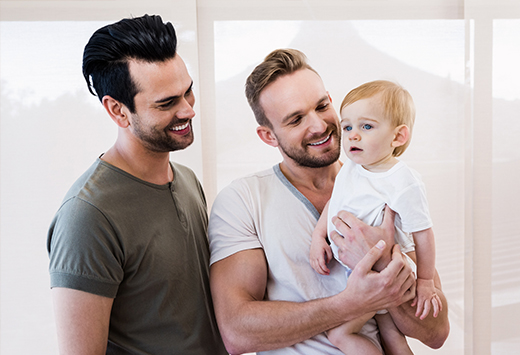Choosing to grow your family through adoption is a big decision that requires thoughtful self-reflection and introspection. All adoptions will come with their own unique joys and challenges, but transracial adoption can often have additional layers of challenges.
What is transracial adoption?
Transracial adoption simply means adopting a child of another race or ethnic background different than your own. Transracial adoptees can be adopted internationally or domestically. If you decide to adopt transracially, here are some things to consider and prepare for ahead of time.
Cultural Identity
Adopted children may struggle with issues related to their cultural identity. Being raised in a family with a different racial or ethnic background may lead to feelings of disconnection from their birth culture. It can be challenging for parents to provide a strong sense of cultural identity and belonging. Counseling can be incredibly beneficial in helping combat some of this and will provide a space for adopted children to develop a positive sense of self.
Racial Awareness & Discrimination
Transracial adoptees may face racism or discrimination based on their racial or ethnic background. Parents need to be prepared to address and help their children navigate these issues, fostering resilience and a positive self-image. This means parents should be prepared to initiate and thoughtfully engage in conversations surrounding race, as well as address and acknowledge their own internal biases.
Lack of Shared Physical Characteristics
The absence of shared physical characteristics between adoptive parents and the adopted child may attract attention and questions from others, potentially making the child feel different or singled out. This can also increase feelings of disconnection or lead adopted children to feeling like they don’t belong. As a positive practice, parents should affirm and hold space for these feelings as well as be prepared for their child to vocalize them.
Cultural Responsiveness of Parents
Adoptive parents need to educate themselves about their child's cultural background and be prepared to incorporate elements of that culture into their family life. As they grow older, some adopted children will desire this, others will not. Either way, parents should have an ongoing effort and a commitment to understanding and respecting their child's biological culture.
Microaggressions
Both parents and children may encounter well-intentioned but insensitive comments or actions from others that highlight their differences. These microaggressions may come from classmates at school or even relatives at family gatherings. No matter where they come from, they can be hurtful and require thoughtful responses. Be prepared to address these as they come up and be intentional about making sure your child feels safe. Additionally, it is your responsibility to educate and correct others that use microaggressions or do not use positive adoption language.
Isolation
Transracial adoptees may feel isolated or struggle with a sense of not fully belonging to either their adoptive family's culture or their birth culture. For adoptees, this is one of the hard realities within transracial adoption. While parents cannot fix this, they can create environments that foster a sense of belonging and understanding and create space for their adopted child to work through these feelings.
Family Discussions & Support
Open and honest communication within the family about race, identity, and cultural background is crucial. It is important to create an environment where children feel comfortable discussing their feelings and experiences. Establishing home as a safe space that welcomes hard conversations is key. Additionally, adoptive parents should initiate conversations surrounding topics such as race, exploring biological ties or culture, and not always wait for their child to bring them up.
Preparing to address and navigate some of these challenges prior to adopting or even after is essential in appropriately and lovingly caring for transracial adoptees. Adopting transracially will require an ongoing commitment to self-reflection, learning, and education. Parents and families that are proactive in engaging in hard conversations and leaning in when things get hard have a far greater chance at successfully creating a safe space for their adopted child.
By: Ramya Gruneisen




